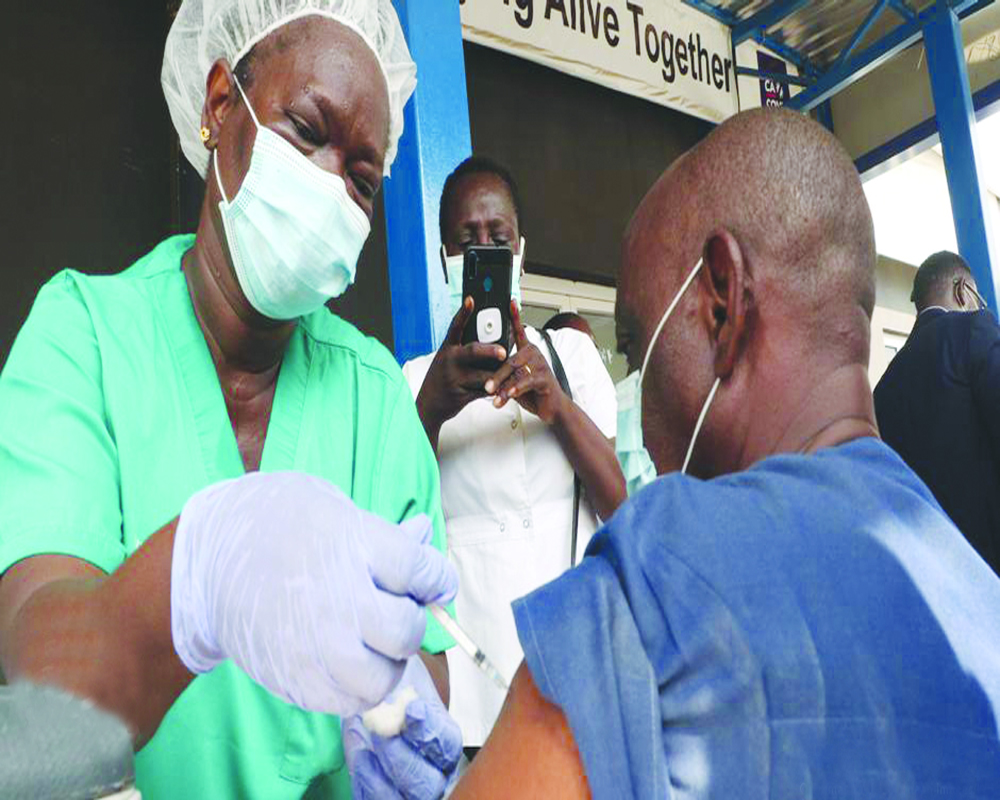A year after the first vaccines became available, only six per cent of Africans are fully vaccinated
The new Omicron variant of the Covid-19 virus was discovered by scientists in South Africa and Botswana, the only countries in southern Africa that have the skills and resources to detect a new variant. On November 23, scientists in Botswana uploaded 99 Sars-CoV-2 genome sequences to the Wellcome Sanger Institute in the United Kingdom, which has operated as a clearing house for more than a million such sequences from dozens of countries since March 2020. They noted that three of the genomes seemed different from the usual Delta variant. On the same day a separate team in South Africa uploaded the genomes of seven Covid samples with the same suspicious mutations in the spike protein that the virus uses to infect human cells. Within hours, scientists everywhere could study those genomes on the web, and in 72 hours the WHO declared that we have a fifth 'variant of concern' on our hands. Whereupon the rich countries of the global north instantly slammed their gates shut against travelers from South Africa and nine other countries in the same region. It's not even clear that this is where the variant first emerged, but never mind all that. Prof Tulio de Oliveira, the Durban-based scientist leading the effort to understand the new variant, pointed out that South Africa has been “very transparent with scientific information...The world should provide support to South Africa and Africa and not discriminate or isolate it.” Fat chance. By Sunday South Africa's President Cyril Ramaphosa was warning that the travel ban "is not informed by science, nor will it be effective in preventing the spread of this variant.
The only thing the prohibition on travel will do is to further damage the economies of the affected countries and undermine their ability to respond to and recover from the pandemic.” Where to start? Perhaps with the fact that there is no country called 'Africa'. For example, there is actually no shortage of vaccines in South Africa, a semi-developed country where the main problem is vaccine reluctance. Internet access is high and mistrust of authority is even higher, so only 27 per cent of South Africans are fully vaccinated. The risk of new variants emerging still exists even in rich countries where the Covid virus continues to circulate widely. In most African countries, and in the poorest Asian countries as well, the risk is very high and will remain so, because they just can't get enough vaccines. A year after the first vaccines became available, only 6 per cent of Africans are fully vaccinated. Twelve billion vaccine doses will have been produced in the world by the end of this month (December), which is more than enough for every human being over 18 years old. But the rationing is mainly done by price, so school-children are being vaccinated and adults are getting a third jab in the wealthy countries, while several billion adults have not yet had their first jab in the global south. And in the meantime, they are also punishing the economies of the poor by imposing knee-jerk travel bans on an entire region of Africa on suspicion of harbouring the Omicron virus — even though we all know that it has already been confirmed in Europe and Asia, and is doubtless present in the Americas too. The right move, even at this late date, is to focus all the world's energies on getting vaccines into the poorest countries: 'nobody is safe until everybody is safe'. Omicron looks like it may be a big problem, and there could be even bigger ones behind it.
(Gwynne Dyer's new book is ‘The Shortest History of War’. The views expressed are personal.)


























